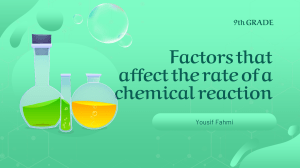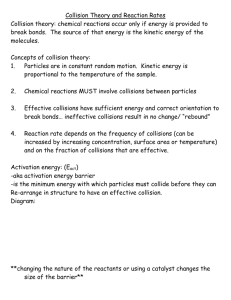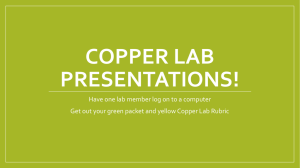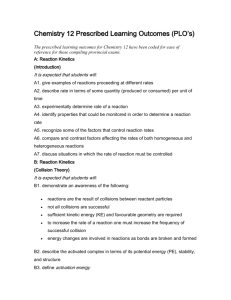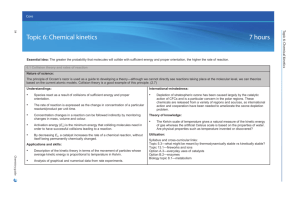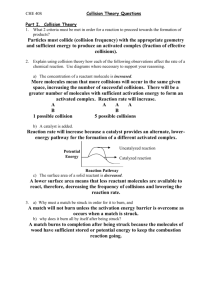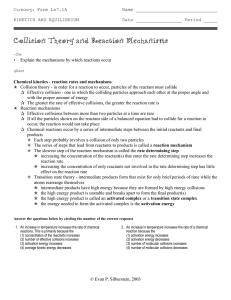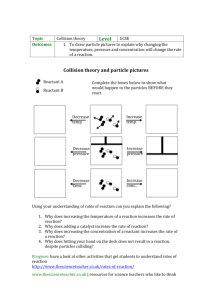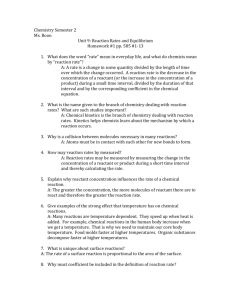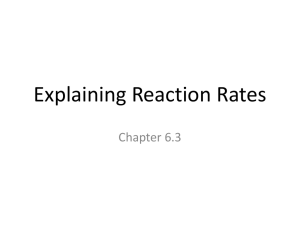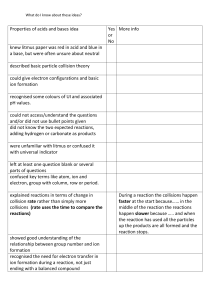Chemical Kinetics
advertisement
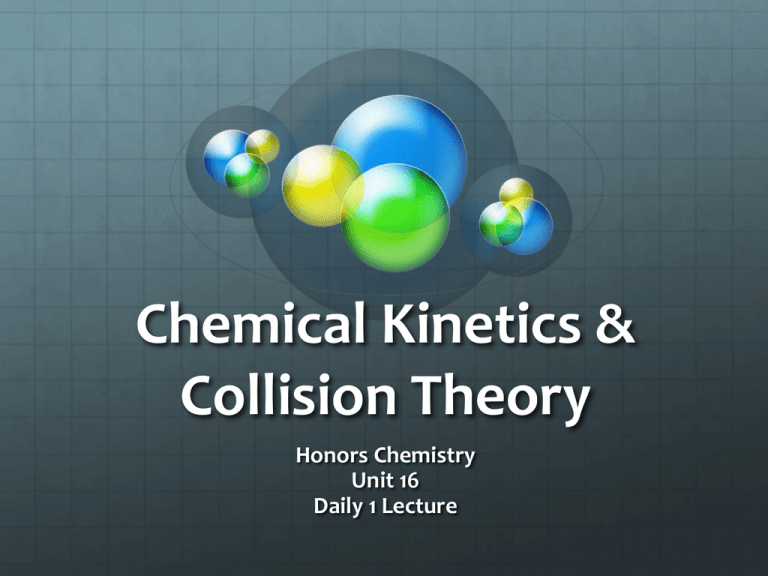
Chemical Kinetics & Collision Theory Honors Chemistry Unit 16 Daily 1 Lecture Then and Now… Previous Unit: Will a reaction occur? Current Unit: How fast does a reaction occur? Key Questions 1. How do you measure the speed, or rate, of a reaction? vs. 2. What factors influence how fast a reaction occurs? Key Question #1 What is Rate? • How fast something takes place • Speed = distance/time If a car travels 30 miles in ½ hour, what is it’s speed? A Tale of Two Cars Distance Traveled (miles) 70 60 50 40 30 Car 1 20 Car 2 10 0 0 20 40 Time (minutes) 60 80 Reaction Rates • A measure of how fast a reaction occurs, or how something changes during a given time period. • How can you measure the speed of the following reaction: C6H12O6(s) + 6 O2(g) → 6 CO2(g) + 6 H2O(g) …measure how quickly the mass of solid glucose decreases …measure how quickly the gases (CO2(g) & H2O(g)) form Reaction Rates (cont.) Volume of Hydrogen Formed (mL) Mg(s) + 2HCl(aq) H2(g) + MgCl2(aq) 60 50 40 30 20 10 0 0 5 10 Time (min) 15 20 Reaction Rates (cont.) • Other possible things that could be measured, depending on the reaction: o o o o o o o change in pressure as gases are formed or used up change in volume as gases are formed or used up change in mass as solid is formed or used up change in temperature change in conductivity change in pH change in color ex) AgNO3(aq) + Cu(s) CuNO3(aq) + Ag(s) reaction rate = amount of product formed time interval product In a Nutshell… time reaction rate = amount of reactant used time interval Or… reaction rate = change in concentration time interval reactant Or… time Key Question #2 What Affects Rates? Collision Theory: • Particles must collide for reactions to occur • Rate depends on the frequency of collisions TO SUCCEED, collisions must have: • Sufficient energy • Proper orientation Increasing Chances for Successful Collisions • Temperature • Concentration • Surface Area • Catalysts • Nature of Reactants
